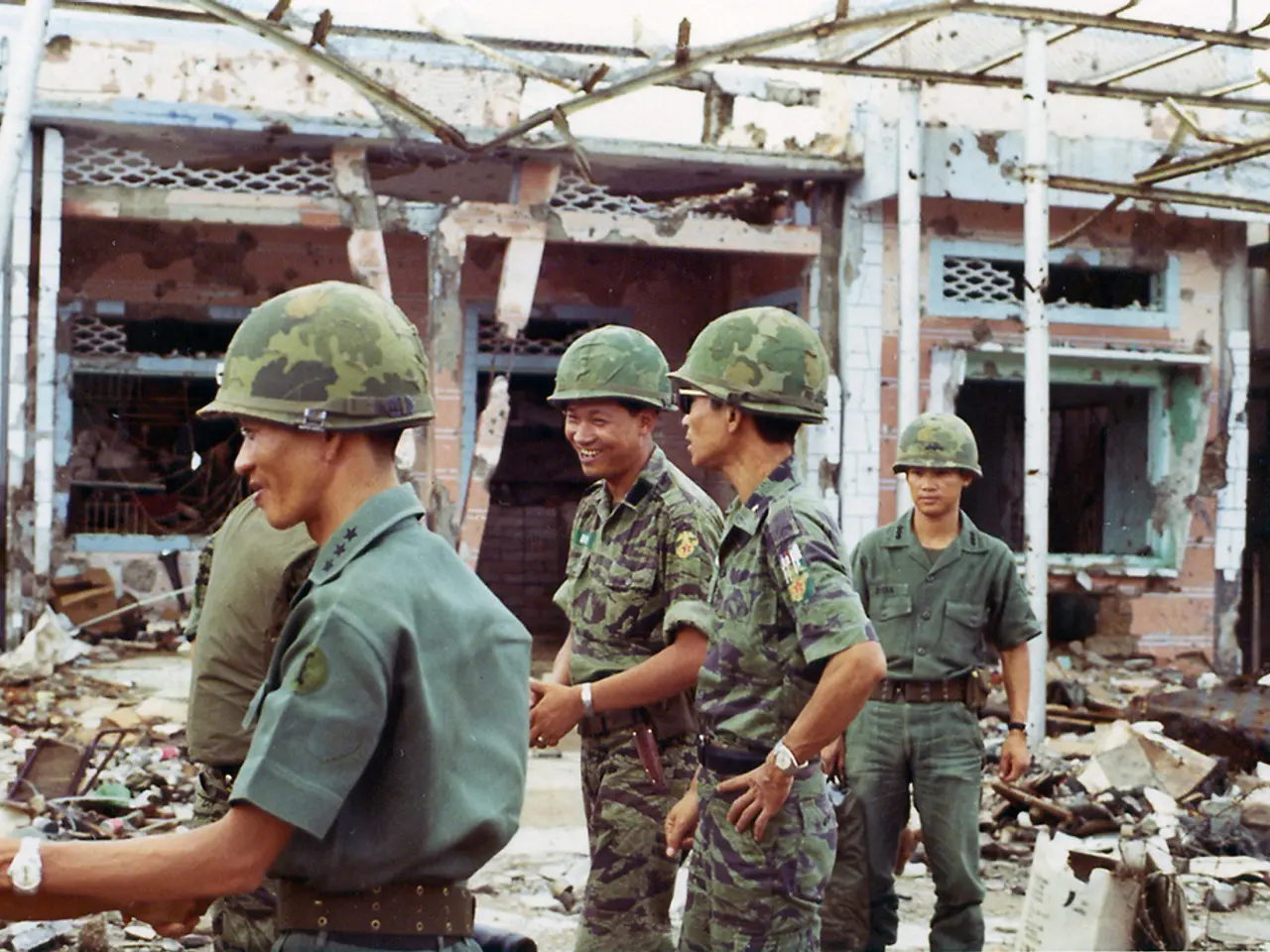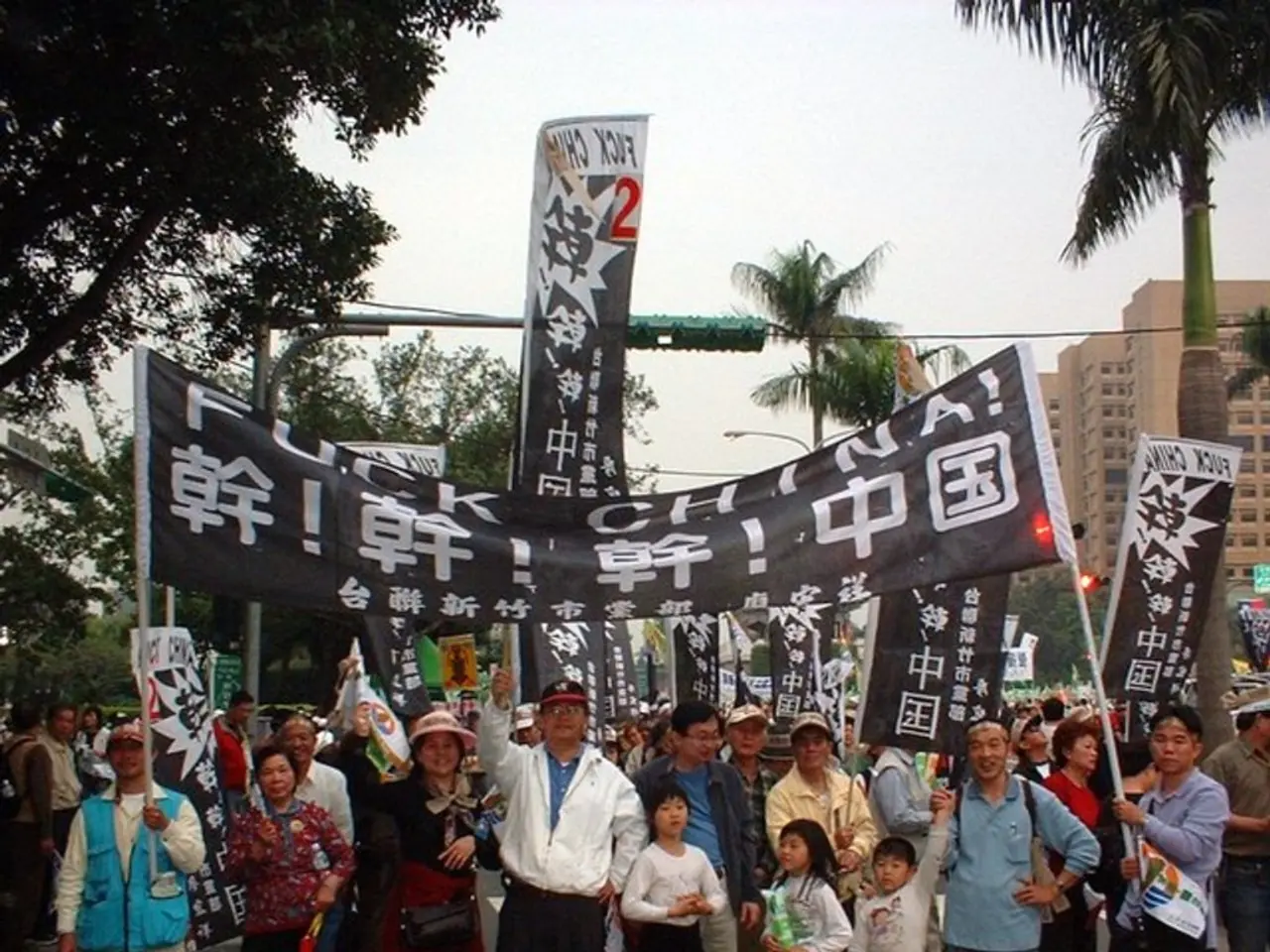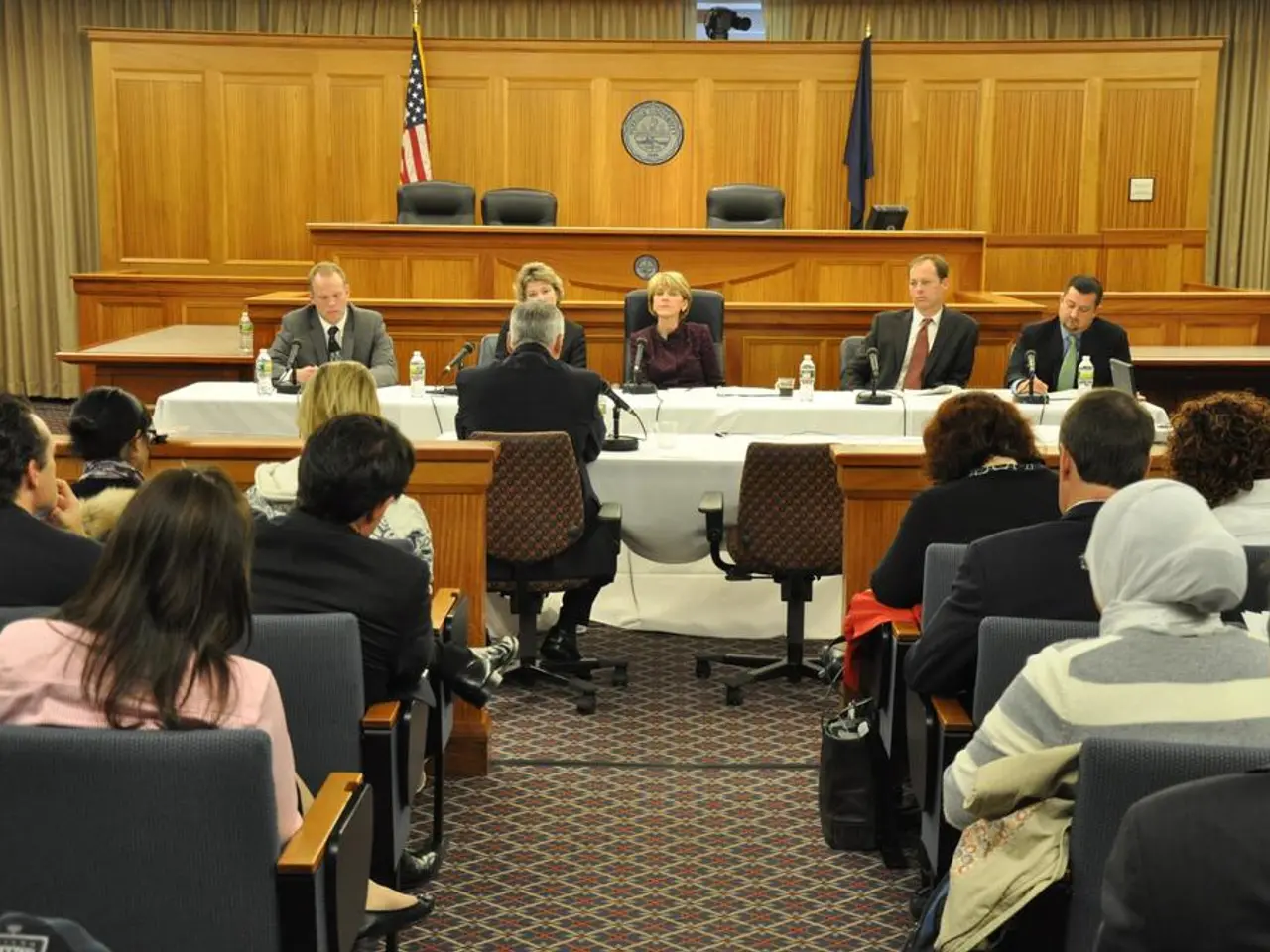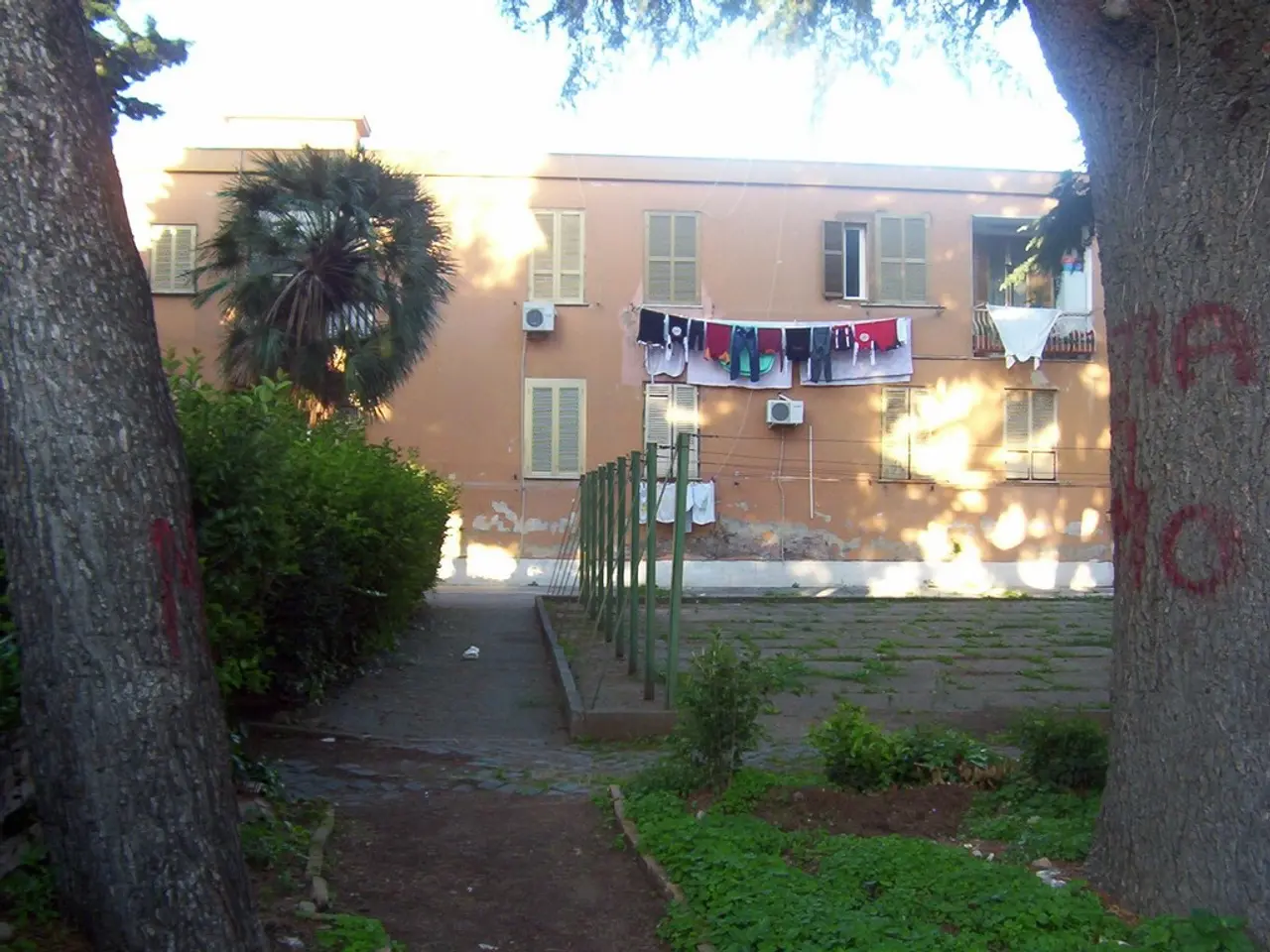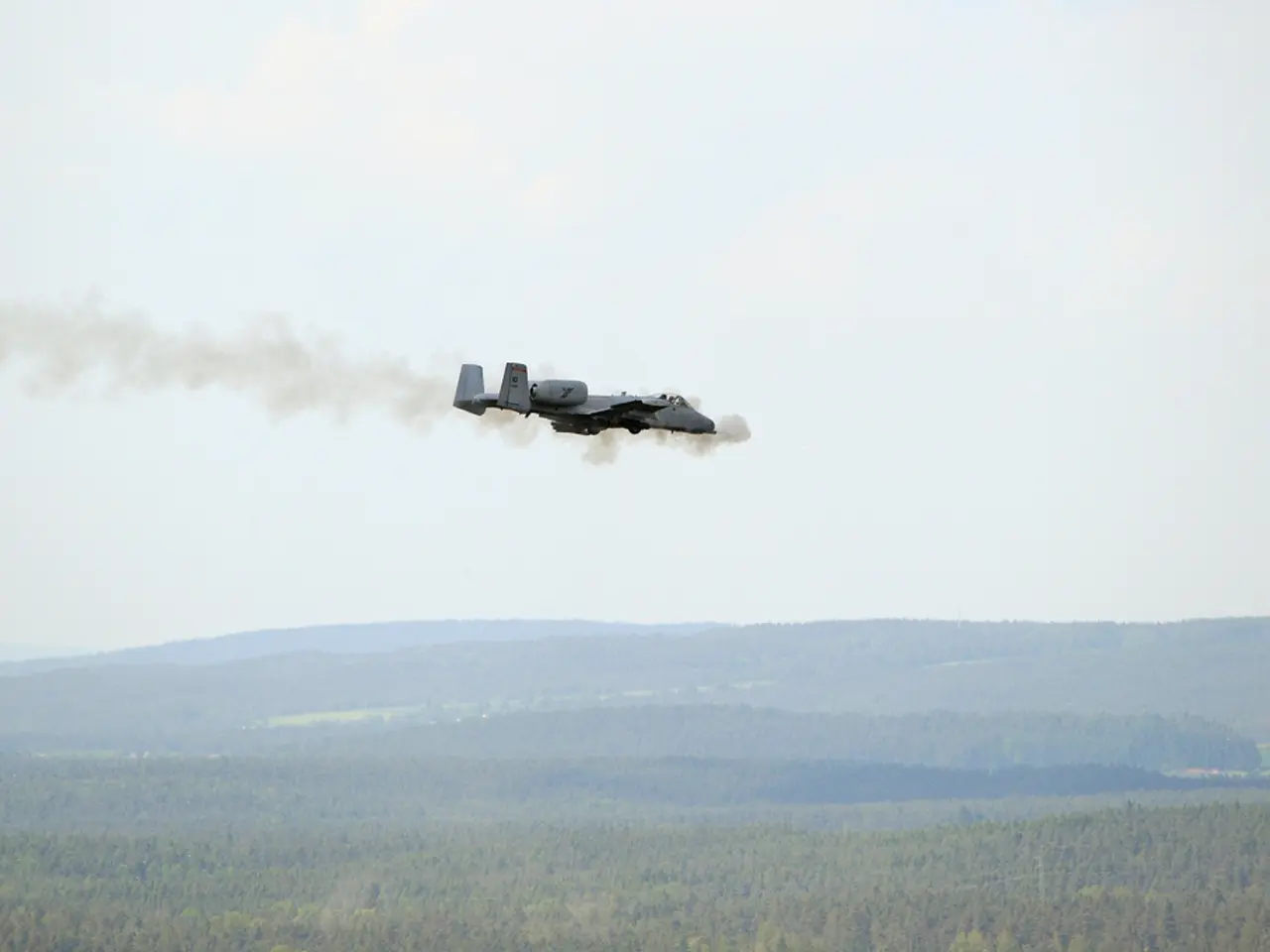Bombardment of Rafah by Israel after Hamas agrees to truce agreement
In the midst of escalating tensions, Israel ramped up its attacks on Rafah late Monday, following a US-mediated ceasefire proposal accepted by Hamas. The town, crammed with around 1.5 million displaced Palestinians, bore the brunt of air strikes, artillery shelling, and ground offensives. reports suggest a significant number of casualties and the sky was ablaze with flares, with locals claiming to spot countless drones buzzing overhead [1].
Israeli military sources announced their intentions to target Hamas positions in eastern Rafah. This aggressive move came shortly after Hamas agreed to a ceasefire proposal that included several phases: an immediate withdrawal of Israeli forces from certain regions in the Gaza Strip, a permanent halt to military operations, and ultimately lifting the blockade imposed on the region [1].
In exchange, Israel was expected to release unspecified numbers of Palestinian prisoners, withdraw troops from designated areas within the Gaza Strip, and facilitate travel for Palestinians across the territory. Although regional powers, such as Qatar, Egypt, and Turkey, have expressed support for the proposal, Israel has continued its invasion of Rafah, stating these assaults are essential to put pressure on Hamas and meet strategic objectives [2].
Israel has long planned to invade Rafah, the southernmost city in Gaza hosting over one million refugees since October's war on Gaza began. Upon Israel's orders, approximately 250,000 Palestinians were forced to evacuate Rafah as the attacks on its eastern border intensified [1].
The displaced Palestinians in Rafah were reportedly in a state of panic, fearing for their safety even if they left the city, given their experiences in Gaza over the past seven months. The UN's High Commissioner for Human Rights, Volker Turk, strongly criticized Israel's forcible displacement order, considering it inhumane and inconceivable. Given the ongoing bombardment and the potential of a ground invasion, the situation in Rafah could push human suffering in Gaza to unbearable levels [1].
Aid organizations have warned that an attack on Rafah would cause catastrophic consequences for civilians in the area and greatly impact their ability to provide food assistance to northern Gaza, where a full-blown famine is currently unfolding according to the World Food Programme [1].
Meanwhile, recent meetings between Egypt's military intelligence and Sinai tribes revealed plans for potential Egyptian intervention in the event of an Israeli ground invasion. Egyptian intelligence officials predicted that between 50,000 and 250,000 Palestinians would flee to Sinai if Israel launched a ground offensive [3].
As the situation remains fluid, the world watches with bated breath as players involved in the negotiations forge ahead to bring an end to the conflict and ensure the safety and security of the civilians trapped in the crossfire.
Subscribe to our Newsletters
Jerusalem Dispatch
Be the first to receive updates and in-depth analysis about Israel-Palestine, alongside our other engaging newsletters. Click here to subscribe.
Turkey Unpacked
Gain deep insights into the complex dynamics of modern Turkey. Subscribe today!
Sources:
[1] Middle East Eye Reporters, (2022, Aug 1). Israel intensifies strikes on Rafah after Hamas agrees to US ceasefire offer. Middle East Eye. Link
[2] Al Jazeera Staff, (2022, Aug 1). Israel intensifies attacks on Gaza Strip after Hamas accepts ceasefire. Al Jazeera. Link
[3] Peter Beaumont and Oliver Holmes, (2022, Aug 2). Israel considered plan to evacuate up to 600,000 Palestinians from Gaza – report. The Guardian. Link
- The ongoing conflict between Israel and Hamas in the Gaza Strip, specifically the intensified attacks on Rafah, is a top news story in the general-news and war-and-conflicts sectors of the media.
- Egypt, being a regional power, has expressed support for the US-mediated ceasefire proposal, and there are reports suggesting potential Egyptian intervention if Israel launches a ground offensive in Rafah.
- The displacement of over 250,000 Palestinians from Rafah, due to Israel's attacks, has sparked human rights concerns and criticism from the UN's High Commissioner for Human Rights, Volker Turk.
- Amidst the escalating tensions, the Middle East region has been abuzz with analysis and discussions regarding Israel's aggressive moves against Hamas in Rafah, as well as the political repercussions of such actions.
- Aid organizations have warned that an attack on Rafah could lead to catastrophic consequences for civilians, including impacting their ability to provide food assistance to areas affected by a ongoing famine, such as northern Gaza.
- Crime-and-justice coverage has also emerged, as Israel's actions in Rafah are being scrutinized due to allegations of inhumane treatment of displaced Palestinians and the potential violation of international humanitarian law.
